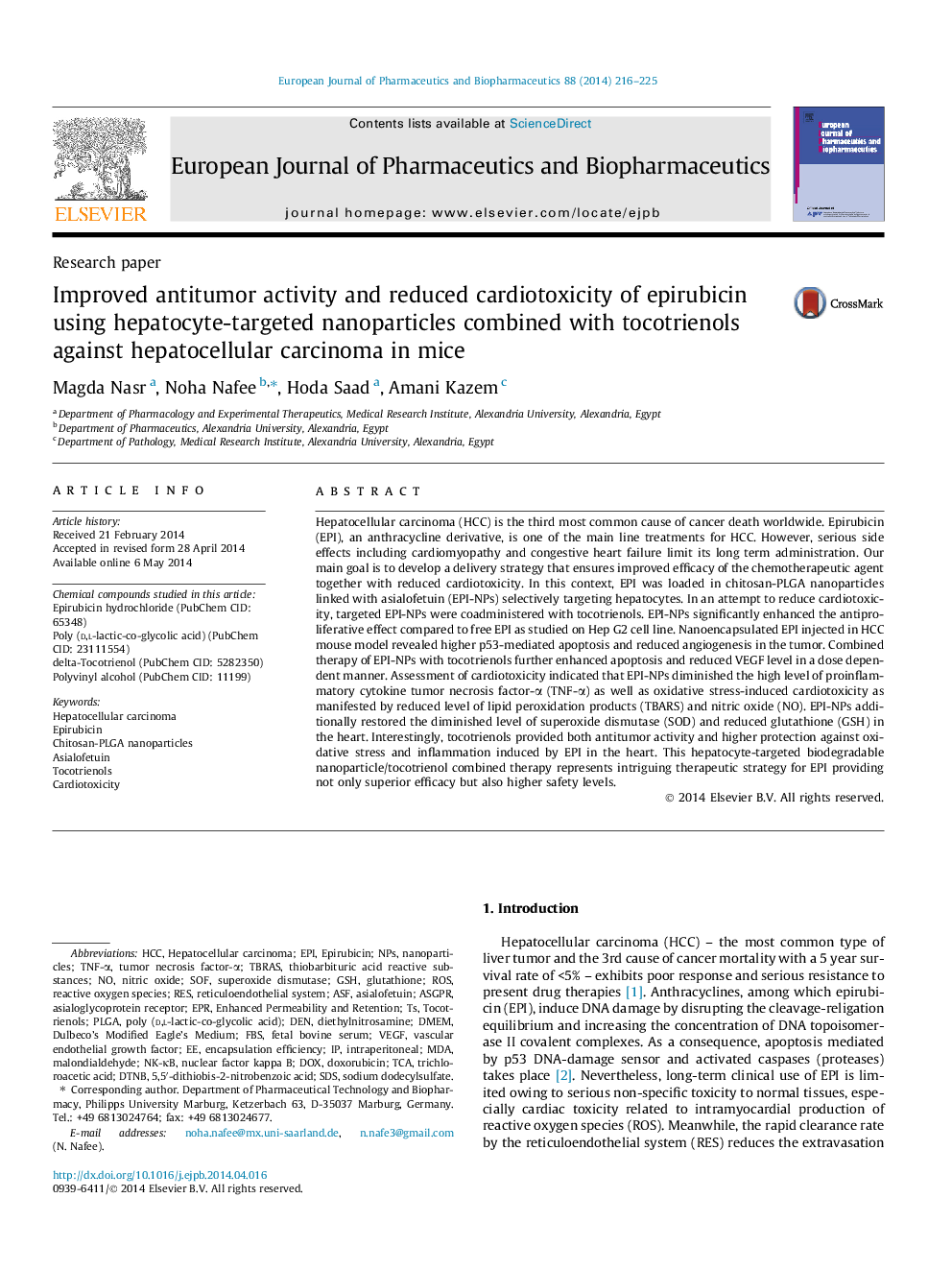| کد مقاله | کد نشریه | سال انتشار | مقاله انگلیسی | نسخه تمام متن |
|---|---|---|---|---|
| 2083602 | 1545339 | 2014 | 10 صفحه PDF | دانلود رایگان |
• Hepatocyte-targeted epirubicin-loaded chitosan-PLGA nanoparticles for HCC.
• Nanoparticles were coadministered with tocotrienols in HCC-induced mice.
• Combined therapy → higher p53-mediated apoptosis and reduced angiogenesis in liver.
• Increased TNF-α, TBARS and nitrate/nitrite levels + reduced GSH & SOD levels in heart.
• Outcomes: improved antitumor activity and reduced cardiotoxicity of epirubicin.
Hepatocellular carcinoma (HCC) is the third most common cause of cancer death worldwide. Epirubicin (EPI), an anthracycline derivative, is one of the main line treatments for HCC. However, serious side effects including cardiomyopathy and congestive heart failure limit its long term administration. Our main goal is to develop a delivery strategy that ensures improved efficacy of the chemotherapeutic agent together with reduced cardiotoxicity. In this context, EPI was loaded in chitosan-PLGA nanoparticles linked with asialofetuin (EPI-NPs) selectively targeting hepatocytes. In an attempt to reduce cardiotoxicity, targeted EPI-NPs were coadministered with tocotrienols. EPI-NPs significantly enhanced the antiproliferative effect compared to free EPI as studied on Hep G2 cell line. Nanoencapsulated EPI injected in HCC mouse model revealed higher p53-mediated apoptosis and reduced angiogenesis in the tumor. Combined therapy of EPI-NPs with tocotrienols further enhanced apoptosis and reduced VEGF level in a dose dependent manner. Assessment of cardiotoxicity indicated that EPI-NPs diminished the high level of proinflammatory cytokine tumor necrosis factor-α (TNF-α) as well as oxidative stress-induced cardiotoxicity as manifested by reduced level of lipid peroxidation products (TBARS) and nitric oxide (NO). EPI-NPs additionally restored the diminished level of superoxide dismutase (SOD) and reduced glutathione (GSH) in the heart. Interestingly, tocotrienols provided both antitumor activity and higher protection against oxidative stress and inflammation induced by EPI in the heart. This hepatocyte-targeted biodegradable nanoparticle/tocotrienol combined therapy represents intriguing therapeutic strategy for EPI providing not only superior efficacy but also higher safety levels.
Figure optionsDownload high-quality image (248 K)Download as PowerPoint slide
Journal: European Journal of Pharmaceutics and Biopharmaceutics - Volume 88, Issue 1, September 2014, Pages 216–225
